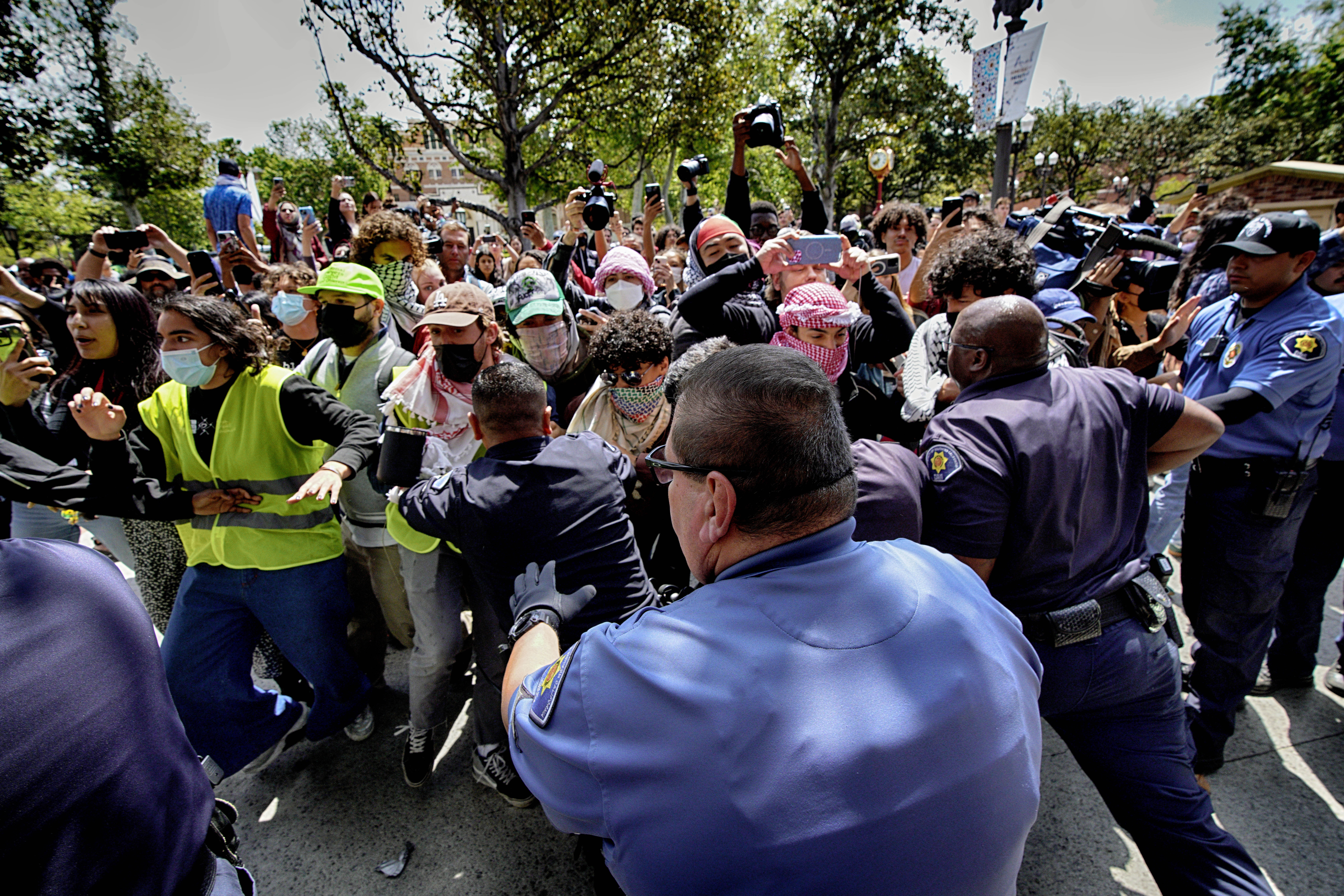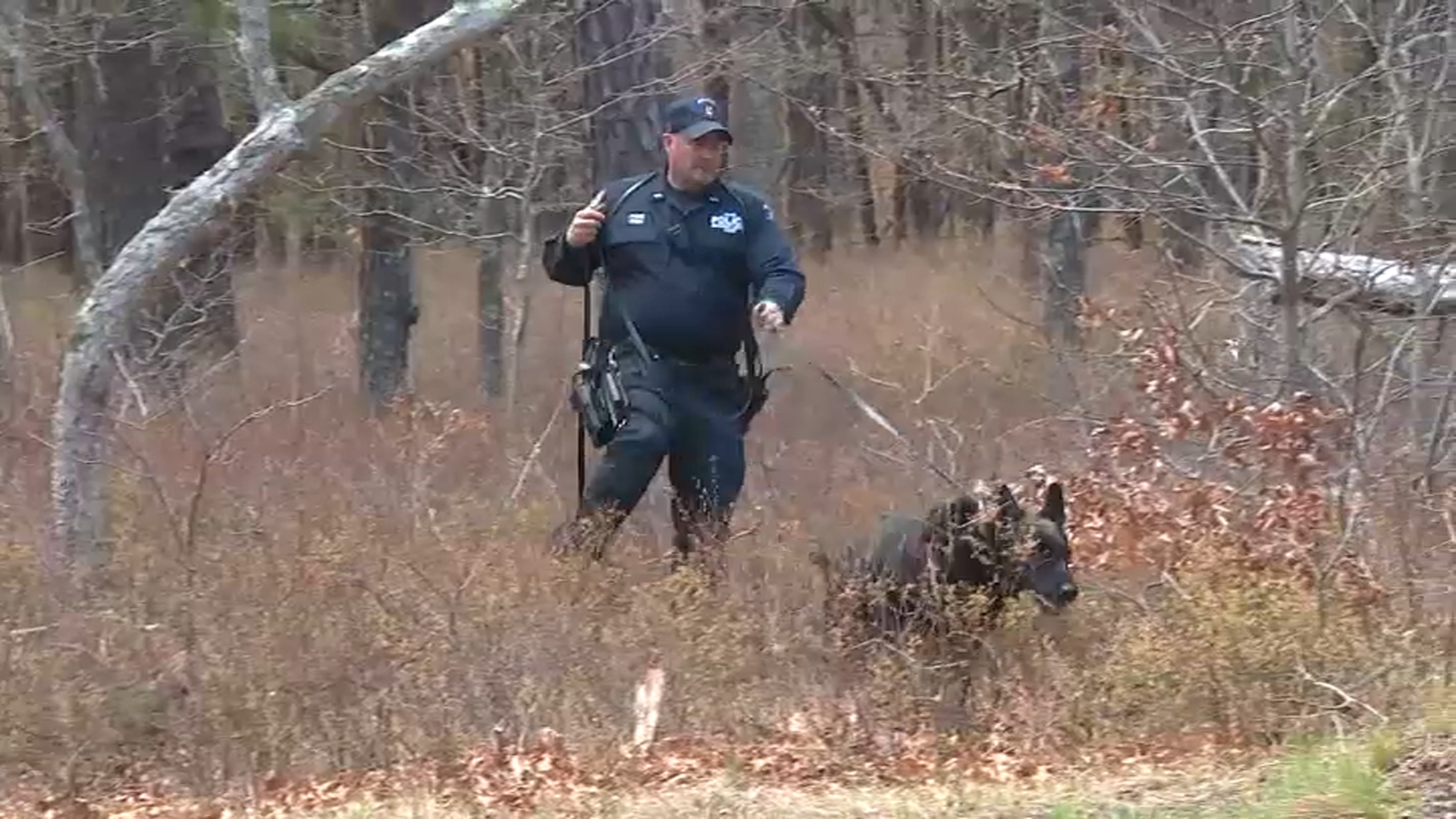What to Know
- The number of people eligible to get the vaccine next week expands to teachers, police officers, firefighters, public transit and safety workers, and people over 75 years old
- After much public back-and-forth this week between Mayor Bill de Blasio and Gov. Andrew Cuomo, the latter said everyone in category 1B to sign-up for their first shots as soon as Monday
- Looking beyond the now eligible groups of 1A and 1B, Cuomo says the state is 47 weeks away from vaccinating the minimum number of New Yorkers needed to reach herd immunity, considered 70 percent
More than 3 million New Yorkers were given the green light to starting signing up for vaccination appointments starting this Monday after Gov. Andrew Cuomo announced the expansion of the state's distribution to include group 1B.
The number of people now eligible to get the vaccine next week expands to include teachers, police officers, firefighters, public transit and safety workers as well as one of the most vulnerable groups: people over 75 years old. The city's teachers union applauded the decision to give educators access to the vaccine, saying it is a "vital step toward ending the pandemic," while also acknowledging it could take months to get it to all educators, due to the federal supply.
After much public back-and-forth this week between Mayor Bill de Blasio and Cuomo, the latter said the state will now allow everyone in category 1B to sign-up for their first shots as soon as Monday. Newly eligible New Yorkers were warned to have patience, the governor said, as millions of people try to schedule appointments in the coming week.
To meet this new demand, thousands of new providers will come online to assist hospitals in distribution efforts. Pharmacies, doctor's offices and local health departments will be among the many new networks welcomed into the distribution plan. Staffs at each provider must be offered the vaccine first to prioritize the safety of incoming patients, Cuomo said.
"We're going to do it fairly," Cuomo emphasized. The state's plan will distribute doses of the vaccine based on percentage of populations, he said. The number of doses allocated to each group within the 1A and 1B will continue to be divvied up proportionally to each of the state's 10 regions based on population.
People over 75 years old make up the largest percentage of New Yorkers eligible for the vaccine in group 1B. In total, the 1.4 million people in that age bracket account for roughly 45 percent of group 1B.
Cuomo expects some 500 pharmacies ready to inoculate eligible New Yorkers by next week. Hospitals across the state, he added, must continue to prioritize healthcare workers in their distribution of the vaccine.
"Supply remains our biggest problem. Our distribution network will far outpace our supply," Cuomo said Friday. "Here's the reality: to finish 1A, we need 1 million doses; 1B, we need 3.2 million doses. We get 300,000 doses per week. At this rate it will take 14 weeks to get through 1A and 1B."
News
Looking beyond the now eligible groups of 1A and 1B, Cuomo says the state is 47 weeks away from vaccinating the minimum number of New Yorkers needed to reach herd immunity, considered 70 percent. That's based on weekly shipments of 300,000 doses.
Nursing homes have made significant progress in their vaccination efforts in past weeks, Cuomo added near the end of his Friday briefing. To date, the state says approximately 79,000 residents and staff have received a dose of the vaccine and by the end of next week everyone in long-term care facilities will have been offered the vaccine, Cuomo said. With the nursing home numbers, New York has so far distributed 479,000 doses as of Friday.
When Could I Get the Vaccine?
Answer the questions to calculate your risk profile and see where you fall in your county's and state's vaccine lineup. This estimate is based on a combination of vaccine rollout recommendations from the CDC and the National Academies of Sciences, Engineering, and Medicine.
For a more detailed breakdown of who is included in each priority group, see this methodology.
Source: the Vaccine Allocation Planner for COVID-19 by Ariadne Labs and the Surgo Foundation
Interactive by Amy O’Kruk/NBC
The expansion of mass testing sites is expected to boost the distribution effort as well. The Javits Center will reopen in New York City on Wednesday just days after the city plans to open its first 24/7 sites.
New York City plans to open two 24/7 sites in Brooklyn and the Bronx on Monday, with a limited window of availability offered during the day on Sunday. Starting 10 a.m. Monday, eligible recipients with previously scheduled appointment times can visit the Brooklyn Army Terminal or Bathgate Contract Postal Station for around-the-clock vaccination.
The three other boroughs will get their own 24/7 sites in the coming weeks, the city confirmed Friday. The third hub will open in Queens at the Queens Theater the week of Jan. 19; the fourth on Staten Island at Empire Outlets the week after; the fifth in Manhattan at La Marqueta the first week in February.
Also opening Sunday: the first vaccine hubs -- in Brooklyn (Bushwick Educational Campus), Queens (Hillcrest High School) and the Bronx (South Bronx Educational Campus). Those will be open seven days a week from 9 a.m. to 7 p.m. and require advance appointment scheduling on the city's Department of Health website.
To date the city has inoculated over 157,000 people with their first dose of a vaccine and an additional 10,044 have received both doses.
Prior to Cuomo's about face at his afternoon briefing, De Blasio on Friday repeated his frustrations with the state's decision to hold vaccinations to the 1A group. The mayor and city health officials earlier this week issued a new and heightened warning to those 75 and older, citing concerning case growth rates and more disturbing numbers on hospitalizations and deaths in the last 30 days. The city has 270,000 doses that could could be administered to that age group now, de Blasio said.
“The state of New York will not allow us to vaccinate them. This is really dangerous if we can’t vaccinate the people who are most in danger. We’re going to lose lives we did not need to lose. Let’s change that now,” de Blasio said.
First responders in New Jersey welcome their first shots at the end of the week. Some 55,000 police and fire personnel became eligible across the Garden State, according to Gov. Phil Murphy's office.
A number of officials in New Jersey's 1B phase took their first doses on Friday at the Morris County Regional Vaccination Center, one of the state's new megasites. Gov. Phil Murphy was joined by other state leaders to tour the facility in the morning.
“Our decision to open up the line for police and fire personnel was simple: They have put themselves in harm’s way for more than 10 months, they’ve responded to medial emergencies, sometimes being the first on site. I’m proud we are able to provide them with this added level of protection,” Murphy said Friday.
New Jersey is opening six megasites and 200 smaller sites. More than 650,000 people have registered for vaccines online since the state website launched Monday, Murphy’s office said. New York will be launching a similar website next week that will find a vaccine provider for those who are eligible.
On Thursday, Cuomo reported 17,636 new daily COVID cases, a single-day pandemic high. The previous high was set on New Year's Eve, when the total topped 16,000 for the first time. Thursday's total was almost 1,000 higher.
"It's the holiday COVID hangover. Celebrate smart, you reduce the infection rate. If you don't celebrate smart, you have a hangover," Cuomo said. "COVID hangover is increasing infection rate, increasing positivity rate and increasing hospitalization rate. That's what we're seeing all across the country."
Daily Percentage of Positive Tests by New York Region
Gov. Andrew Cuomo breaks the state into 10 regions for testing purposes and tracks positivity rates to identify potential hotspots. Here's the latest tracking data by region and for the five boroughs. For the latest county-level results statewide, click here
Source: ny.gov
With the more transmissible U.K. COVID strain now confirmed in New York and in at least six other states, including nearby Pennsylvania and Connecticut, additional positive cases are all but guaranteed to surface in the near future.
Health officials continue to search for people who may have come in contact with a man in his 60s who was discovered with the virus variant. Three people tied to a jewelry store in Saratoga Springs that was linked to the man have been tested for the strain and their results were expected this week.
That process has been underway since Monday evening and officials said it takes about 44 hours for the state to conduct the genetic code sequencing needed to detect the variant that led to a strict shutdown in the U.K.
"Frightening" data indicates the UK strain could overtake the current strain in a matter of weeks, Cuomo warned earlier this week. It's no more lethal than the current strain and no evidence shows it causes worse infections, but the heightened transmissibility alone could lead to a case surge he fears could overwhelm hospitals.
On top of the UK strain, the White House coronavirus task force said there could be a new variant of the virus that evolved in the U.S. and is driving spread, according to a document obtained by NBC News. The strain variant, in addition to the U.K. variant, is already spreading in communities and may be 50% more transmissible, according to the report that was issued to states on Jan. 3.
For its part, the CDC issued a statement saying it has not seen the emergence of a highly contagious new U.S. variant of the coronavirus, but did not that there are probably many variants emerging across the globe.
Hospitals have become increasingly taxed over the last six weeks as it is, a direct consequence of more infections from people's behavior, Cuomo has said. New York state hospitalizations are at 8,548, the highest total since May 6. Single-day death tolls are at mid-May levels, with Cuomo reporting 197 new fatalities Thursday, a single-day high for the current winter surge. And weekly case averages are up 36 percent in New York over the past 14 days, according to New York Times data.
"We are in a footrace between how fast the infection rate goes up and how fast the vaccination rate goes up. I am tell you, we are in a danger zone," Cuomo said, calling the UK strain the "Usain Bolt of infection rates and it is frightening."
Meanwhile, the United States is seeing hospital systems overwhelmed in multiple states as the dreaded holiday surge compounds a surge that had been sweeping much of the nation even before Thanksgiving. December was the deadliest month of the pandemic yet for the U.S., and experts have warned January could be even worse.
The country reported another record number of new coronavirus cases on Friday, topping the record set Thursday — when there were also 4,000 deaths in a day for the first time during the pandemic (there were just over 3,500 deaths on Friday). There are now five states (including New York) with more than a million cases total.
To date, more than 360,000 coronavirus-related deaths have been reported in America, along with more than 21 million cases, according to a tally by NBC News. The head of the CDC warned last month that a total of 450,000 people could die by February if aggressive measures weren't taken to control the spread. That'd add another 100,000 U.S. lives in less than four weeks.



